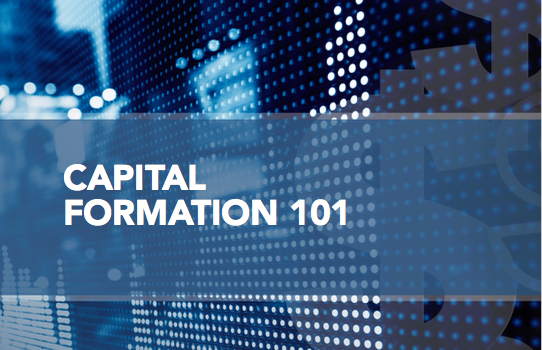
Introduction
It is a pleasure to write a few introductory words to Capital Formation 101 by Dr. Pınar Çebi Wilber, Senior Economist at the American Council for Capital Formation (ACCF). When the ACCF was founded, one of the first tasks for Dr. Richard Rahn, the ACCF’s first Executive Director, was to write and publish a document explaining “Capital Formation for Dummies.” Now, four decades later, it is long past time for a new Capital Formation 101 articulating what capital formation is all about and why it’s important for a strong and vibrant economy. What has changed in those 40 years? The critical role capital plays in a free market remains the same but the structure and composition of the US and global economies have changed considerably.
The timing of Capital Formation 101 could not be more appropriate with the 2016 presidential election looming.
William Galston, a policy advisor to President Clinton and Peggy Noonan, a primary speechwriter to President Reagan, now both columnists for the Wall Street Journal, recently within days of each other wrote about the millennials’ economic naiveté. Galston wrote: “These millennials have no experience of a successful capitalist system and no memory of communism’s failure. Small wonder, then, that as many of them look favorably on socialism (whatever they think it is) as on a market economy.” Noonan wrote “In the young Sander’s support is understandable: they’ve never been taught anything good about capitalism and in their lifetimes have seen it do nothing – nothing – to protect its own reputation.”
Economic education is a continuing challenge and Dr. Wilber’s Capital Formation 101 can make a contribution.
– Mark Bloomfield, President and CEO
Download the full report here:
Capital Formation 101






